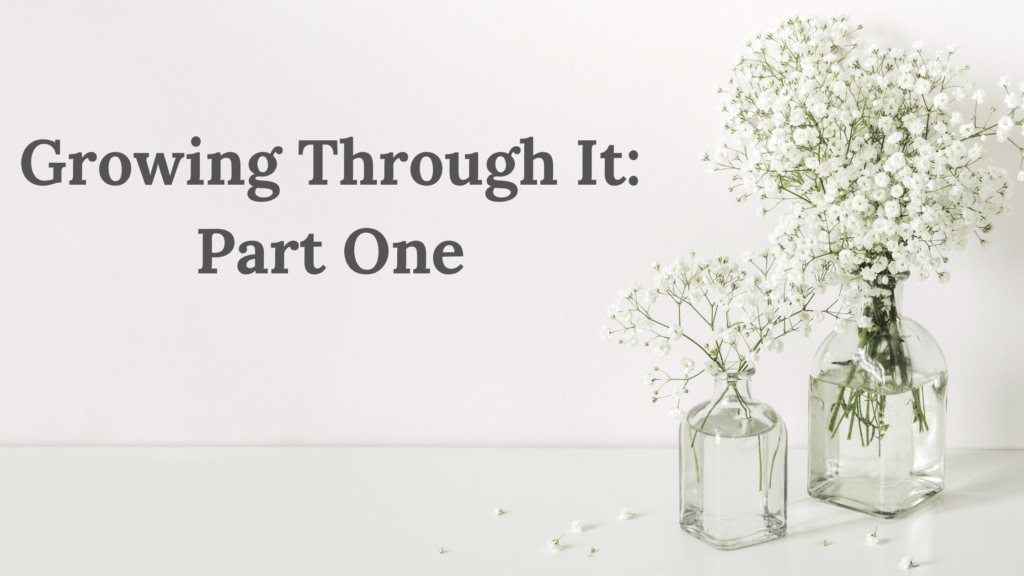Difficult situations come for us every day. Most days, we grin and bear it, stuffing our feelings down and locking them away. It isn’t until days, months, weeks, or even years later that those feelings spill back into our lives, rearing their heads in the form of stress, anxiety, depression, and anger.
We are all told that shoving our feelings down and away isn’t healthy. But we aren’t ever told what to do with them instead. While crying it out or punching a pillow may be cathartic, they don’t dig down to the root of the issue: Why you are feeling the way you are.
The Growing Through It series is meant to help you not only feel your feelings fully, but turn them into something constructive that helps you grow and evolve.

Growing Through It: Introduction
When we are feeling angry, sad, stressed, or worried, the last thing we want to do is look for the lesson or the positive side of things. Unfortunately, this is often one of the best things we can do for ourselves.
This is where tough love comes in. Often, the difficult situations we find ourselves in on a daily basis, such as difficult coworkers, heartache, or spoiled plans are not as bad we take them to be.
Situations are positive or negative depending on the viewpoint of the observer. Something that is seemingly terrible on paper may lead to a period of growth that you will be forever grateful for. I know this has been the case for me. While there are truly horrible circumstances, such as abuse, murder, torture, etc., it is very rare that we experience these things on a daily basis.
Now, I am not saying that you shouldn’t feel how you feel because someone else has it worse. That is far from the truth. You are allowed to feel however you are feeling.
But remember that these feelings are your reaction to a subjective situation.
A situation that brings joy to one person may be the downfall of another. Work deadlines may cause you significant stress, while your neighbor thrives under these conditions. We all have different strengths and weaknesses, and certain situations get under our skin more than others.
This is why it is important to remember that a situation is neither good nor bad (usually) until you choose to make it so. It is not the situation itself that is negative, but your reaction to it. The situation is what it is and it does not have the autonomy to decide whether or not it is a positive situation. That responsibility rests on your shoulders.
The human race is notorious for blaming the situation itself for their negative feelings, instead of looking at their own minds. Once again, to quote Eckhart Tolle, this is normal, and it is insane. It is totally okay to label situations as negative, as this is one of the ways the mind copes with life.
If there is something outside of ourselves to blame, we feel more in control, because the problem is no longer about us.
But once we realize that it is our reaction to the situation that causes our negative emotions, we have the power to dig down deep inside of ourselves, heal our past, and grow into the highest versions of ourselves.
This path is not easy, and it takes courage. But the first step to transforming our emotions into something constructive is recognizing that our feelings are under our control.
No one else can make you feel a certain way without your permission, either conscious or unconscious. It is not up to the outside world to determine your internal environment. Rather, it is your inner environment that determines your external world.
You are perfectly allowed to feel however it is you are feeling, this is true. But have the courage to take responsibility for your emotions. Until you do this, you cannot transmute your suffering into something greater, higher, or more constructive. Take responsibility for your inner world, so that it can shine a light into your external one.


